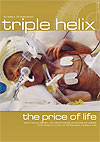This isn't a new book, but it is generating increasing discussion in university departments and elsewhere: hence this review.
The author's argument is that the only way to prevent suffering is for people not to exist, so the extinction of the human race is beneficial. There is no balance to be struck. the absence of pain is good, even if nobody enjoys that good. Absence of pleasure is not bad because if nobody exists then nobody is deprived.
Within its own terms the argument is correct, which matters, because if it gains traction then Parliament, which currently recognises abortion as the lesser of two evils, and is exploring that stance with respect to euthanasia, might move to 'pro-death' as the principled default position.
The proper response is that a person is not simply an individual, but instead belongs within a web of relationships, so a person's birth and life can be good for others.
If you enjoy an enthical challenge, then read this book.
The author's argument is that the only way to prevent suffering is for people not to exist, so the extinction of the human race is beneficial. There is no balance to be struck. the absence of pain is good, even if nobody enjoys that good. Absence of pleasure is not bad because if nobody exists then nobody is deprived.
Within its own terms the argument is correct, which matters, because if it gains traction then Parliament, which currently recognises abortion as the lesser of two evils, and is exploring that stance with respect to euthanasia, might move to 'pro-death' as the principled default position.
The proper response is that a person is not simply an individual, but instead belongs within a web of relationships, so a person's birth and life can be good for others.
If you enjoy an enthical challenge, then read this book.
































